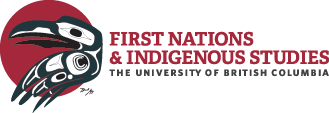In January through April 2005 the First Nations Studies Program at the University of British Columbia hosted a set of eight lectures exploring the issues of land claims in BC and associated governance issues. British Columbia is unusual in Canada in having very few historical treaties. Canadian courts at the close of the 20th century have recognized what First Nations have long known–that, in the absence of treaties, land was never surrendered. In this evolving circumstance, First Nations, governments, and other entities have engaged in several kinds of processes to negotiate differences over land–treaty processes, court cases, and other forms of negotiated settlements. While several excellent academic books address aspects of these situations, this series brings forward the perspectives and expertise of community leaders, lawyers, and others who have been actively involved in crucial aspects of these situations.
You can begin exploring this archive through one of the sample topics noted below, or by opening the IVT viewer, clicking on the Session Menu button for short descriptions of the sessions, and exploring the session of your choice (if the IVT does not seem to work properly, see IVT Browser and Troubleshooting Information for help).
Session 3, which focuses on the court cases that have shaped the legal landscape for land claims in British Columbia, from two lawyers central to them (Land Claims 3,2).
A snapshot of modern treaties: in 2005 the Nisga’a treaty had been concluded and implementation was underway, and the Tsawassen Treaty, since concluded, was still in progress. Former Nisga’a Lisims CEO Edward Allen and Tsawassen Chief Kim Baird speak (Land Claims 4,2).
Some good stories: listen to Delbert Guerin explain the rocky road to "the honour of the Crown" (Land Claims 3,56), or Satsan (Herb George) tell a fantastic story about community values and outside experts (Land Claims 6,40).
At the time of the last session in this series, Tahltan elders opposing Shell Oil’s plans to begin drilling in the Sacred Headwaters area in northern British Columbia. Our final session, on political action utside of organizations, presents speakers for both the elders and the Chief and Council they opposed (Land Claims 8,4).
Finally, you might like to view the presentations of two monumental Aboriginal leaders who have both passed away since these lectures. George Watts led major initiatives for Nuu-chah-nulth communities for many years, including the Maa-nulth treaty that occupied the years before his death (Land Claims 2,53). Patricia Monture was a lawyer and professor who was a leader and mentor for many within the Aboriginal academic community and beyond (Land Claims 6,3).
If you would simply like to explore the archive on your own, (click here)

